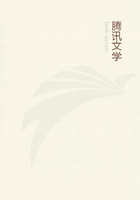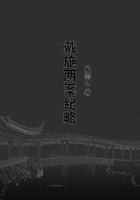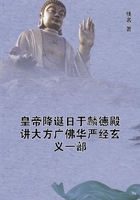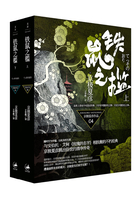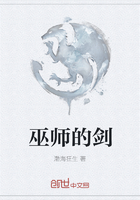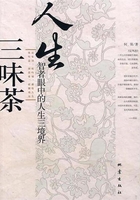*****Note--As certain things must be produced immediately by God, namely those things which necessarily follow from his absolute nature, through the means of these primary attributes, which, nevertheless, can neither exist nor be conceived without God, it follows: 1. That God is absolutely the proximate cause of those things immediately produced by him. I say absolutely, not after his kind, as is usually stated. For the effects of God cannot either exist or be conceived without a cause (Prop. xv. and Prop. xxiv. Cor.). 2. That God cannot properly be styled the remote cause of individual things, except for the sake of distinguishing these from what he immediately produces, or rather from what follows from his absolute nature. For, by a remote cause, we understand a cause which is in no way conjoined to the effect. But all things which are, are in God, and so depend on God, that without him they can neither be nor be conceived.
XXIX. Nothing in the universe is contingent, but all things are conditioned to exist and operate in a particular manner by the necessity of the divine nature.
Proof--Whatsoever is, is in God (Prop. xv.). But God cannot be called a thing contingent. For (by Prop. xi.) he exists necessarily, and not contingently. Further, the modes of the divine nature follow therefrom necessarily, and not contingently (Prop. xvi.); and they thus follow, whether we consider the divine nature absolutely, or whether we consider it as in any way conditioned to act (Prop. xxvii.). Further, God is not only the cause of these modes, in so far as they simply exist (by Prop. xxiv., Cor.), but also in so far as they are considered as conditioned for operating in a particular manner (Prop. xxvi.).
If they be not conditioned by God (Prop. xxvi.), it is impossible, and not contingent, that they should condition themselves; contrariwise, if they be conditioned by God, it is impossible, and not contingent, that they should render themselves unconditioned. Wherefore all things are conditioned by the necessity of the divine nature, not only to exist, but also to exist and operate in a particular manner, and there is nothing that is contingent. Q.E.D.
*****Note--Before going any further, I wish here to explain, what we should understand by nature viewed as active (natura naturans), and nature viewed as passive (natura naturata). I say to explain, or rather call attention to it, for I think that, from what has been said, it is sufficiently clear, that by nature viewed as active we should understand that which is in itself, and is conceived through itself, or those attributes of substance, which express eternal and infinite essence, in other words (Prop. xiv., Cor. i., and Prop. xvii., Cor. ii.) God, in so far as he is considered as a free cause.
By nature viewed as passive I understand all that which follows from the necessity of the nature of God, or of any of the attributes of God, that is, all the modes of the attributes of God, in so far as they are considered as things which are in God, and which without God cannot exist or be conceived.
XXX. Intellect, in function (actu) finite, or in function infinite, must comprehend the attributes of God and the modifications of God, and nothing else.
Proof--A true idea must agree with its object (Ax. vi.); in other words (obviously) that which is contained in the intellect in representation must necessarily be granted in nature. But in nature (by Prop. xiv., Cor. i.) there is no substance save God, nor any modifications save those (Prop. xv.) which are in God, and cannot without God either be or be conceived. Therefore the intellect, in function finite, or in function infinite, must comprehend the attributes of God and the modifications of God, and nothing else. Q.E.D.
XXXI. The intellect in function, whether finite or infinite, as will, desire, love, &c., should be referred to passive nature and not to active nature.
Proof--By the intellect we do not (obviously) mean absolute thought, but only a certain mode of thinking, differing from other modes, such as love, desire, &c., and therefore (Def. v.) requiring to be conceived through absolute thought. It must (by Prop. xv. and Def. vi.), through some attribute of God which expresses the eternal and infinite essence of thought, be so conceived, that without such attribute it could neither be nor be conceived. It must therefore be referred to nature passive rather than to nature active, as must also the other modes of thinking. Q.E.D.
*****Note--I do not here, by speaking of intellect in function, admit that there is such a thing as intellect in potentiality: but, wishing to avoid all confusion, I desire to speak only of what is most clearly perceived by us, namely, of the very act of understanding, than which nothing is more clearly perceived. For we cannot perceive anything without adding to our knowledge of the act of understanding.
XXXII. Will cannot be called a free cause, but only a necessary cause.
Proof--Will is only a particular mode of thinking, like intellect; therefore (by Prop. xxviii.) no volition can exist, nor be conditioned to act, unless it be conditioned by some cause other than itself, which cause is conditioned by a third cause, and so on to infinity. But if will be supposed infinite, it must also be conditioned to exist and act by God, not by virtue of his being substance absolutely infinite, but by virtue of his possessing an attribute which expresses the infinite and eternal essence of thought (by Prop. xxiii.). Thus, however it be conceived, whether as finite or infinite, it requires a cause by which it should be conditioned to exist and act. Thus (Def. vii.) it cannot be called a free cause, but only a necessary or constrained cause. Q.E.D.
Corollary I--Hence it follows, first, that God does not act according to freedom of the will.

